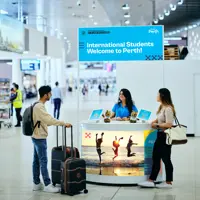Support to keep you safe and healthy
As one of the world's most liveable cities, Perth is known for its safe, secure and stress-free lifestyle.
But, despite the city's safety and security, it’s still important to know who to contact should you ever need assistance.
From emergency services to healthcare providers, know who to contact and how to contact them so you’ll have the peace of mind knowing support is always there if you need it.
For more information, visit our Safety and Wellness page.


